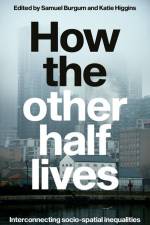av Samuel Burgum
325,-
We are, all of us, intimately familiar with inequalities. Whether finding somewhere to live, walking in the street, following the news, negotiating international travel, or in our working and personal lives, subtle and crude hierarchies shape our lived experience. How the other half lives contributes detailed, multidisciplinary and qualitative explorations of the everyday social and spatial realities of inequality, drawing new lines from Manchester to Milan, from Brighton to Bologna. How the other half lives is a resource to navigate an unequal world, oriented around three key understandings of inequality as contingent, as intersectional and as interrelated. The book focuses attention on the differences, similarities and in-between points where 'the other halves' meet, to provoke new and useful perspectives on inequalities. It considers the connections between the accumulation of profound wealth and impoverished communities, the banal decisions by those in the seats of power and increasing levels of violence in austerity-wracked neighbourhoods, and between a world of smooth mobility and oppressive borders. How the other half lives is uniquely structured as a series of oppositions between peaks and troughs, with each chapter focusing on a specific subject, including: housing, urban design, place-making, the state, cultures of inequality and transnational mobility. With a preface from the Guardian's Zoe Williams and concluding remarks from Professor Rowland Atkinson, this book will appeal to undergraduates and academic readers in the social sciences who are interested in contemporary social and spatial inequalities.


